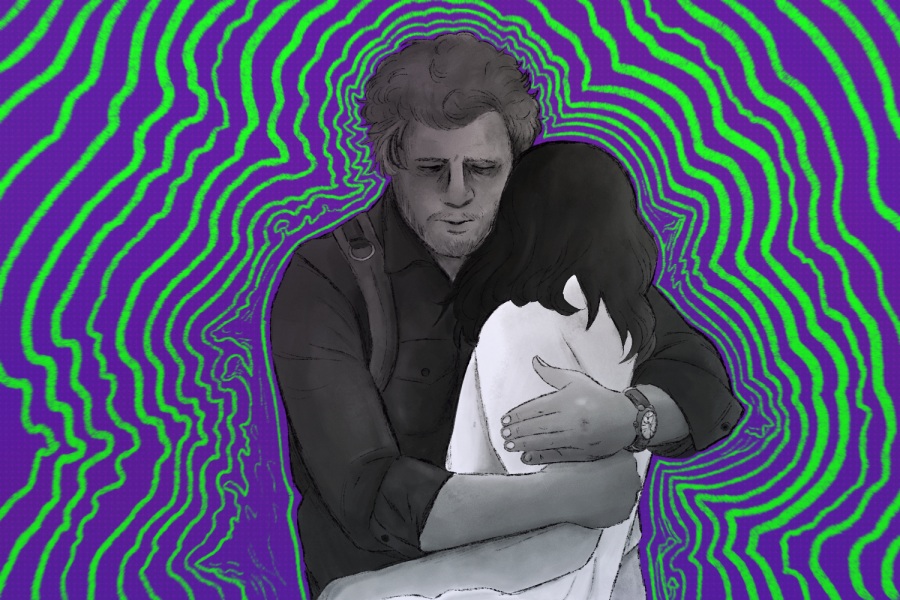
Independent artist mxmtoon’s debut album, “the masquerade,” is a raw, honest, and gorgeous testament to the modern teenager.
Mxmtoon (pronounced em-ex-em-toon), or “Maia,” as fans know her, is 19 years old and has been creating music since she first started singing in her middle school band. Later, she began playing the ukulele at home and writing her own songs, which she would eventually upload to SoundCloud.
On Sept. 17, 2019, she released her debut album to the world.
“So much of this album is about me hiding parts of myself or wearing a mask,” Maia said. “The whole reason I started writing songs as mxmtoon was because I was tired of wearing a mask during the day. I needed a way to cope and understand what was going on in my head.”
Her album, “the masquerade,” features 10 songs, as well as an acoustic counterpart for each.
Between the strumming of a ukulele and soft electronic beats, the Oakland-based artist sings her “rhyming diary entries” about everything from first love to friendship to mental health. Amid echoing melodies, her voice goes from bright to heartfelt to sad in the blink of an eye.
Maia shows off her voice in “blame game,” a soulful breakup song. Her talented voice is strong at times and soft at others, with the control of a trained singer and the emotion of a high school student.
Background harmonies in a minor key enhance the sadness and guilt of the song while contrasting light notes only add to the emotion.
Maia makes use of many different sounds, a perk of having a producer for the first time. Instead of going solo ukulele like in her previous songs, “the masquerade” features trumpets, electric guitar, piano, and special effects, such as the sound of a ringtone in “unspoken words.”
As Maia catapults into a larger spotlight, she uses her platform to talk about her own identity. On Spotify-produced podcast “21 Days,” which covers her 21-day journey in recording “the masquerade,” the artist talks about growing up biracial and bisexual.
“I’m half-Chinese and half-white, but I grew up very culturally Chinese, and as a result, I identify as mixed-race Asian-American,” Maia said in a video on her TikTok account. Other videos she posted concerning her mixed-race identity have resonated with the online community, expanding her Internet following.
In her 2017 single “hong kong,” Maia fondly recalls visiting her extended family in Hong Kong. She reflects on the feeling of pain caused by the people you love living thousands of miles away.
“A home away from home / yet oh so far away” she sighs in the chorus.
In “21 Days,” she talks about how her racial identity intersects with her sexuality. Maia notes that her songs have changed her, helping her in “identifying as bisexual and feeling okay to claim that as a part of my identity.”
Out of all the beautiful things in this album, the lyrics clearly take center stage. Throughout “the masquerade,” Maia uses her lyrics to dive deeper into “understanding how two identities can contrast with each other, whether that’s being mixed-race or being bisexual.”
Right from the start of the album, it’s clear that she isn’t afraid to face her feelings head-on.
The song “untitled” is an echoing reflection of loss, with a slow and steady beat that heightens the song’s emotion.
“I just feel so alone / and I’m learning to be okay all on my own / It’s hard to picture life without you,” Maia muses.
Like most teenagers, love plays a significant role in mxmtoon’s mentality. In “suffice” and “dream of you,” she sings of lost love, bittersweet memories, and being too scared to admit her feelings.
“How sad is it / that I suffice for friendship,” she reflects in “suffice.”
However, despite the melancholy lyrics, this isn’t a depressing album. Instead, I found myself tapping my foot to many of the songs. The bright notes of a ukelele are present in almost every song, creating a bold contrast with the soft electronic backgrounds and the rawness of the lyrics.
In “prom dress” and “seasonal depression,” mxmtoon details the struggles of mental illness that many teens face today. Instead of being slow and sad, however, these songs are quite the opposite.
“Seasonal depression’s got me sleeping off the days / and I’ve wasted all my time feeling gray,” she sings in the chorus of “seasonal depression” against an upbeat tempo and steady drums. Almost without realizing it, my head started to nod, and my knee started to bounce along to the tune.
The most beautiful song on the album is “unspoken words,” a tribute to the artist’s grandmother.
“I should’ve said it sooner / who knows what’s in the future / but now I need you to know / that I love you / you know it’s true / you don’t need to say it back to me / because I know you do,” she sings to the sound of soft drums.
Her voice soars and drops lovingly against a background of harmonies, accompanied by special effects like the sound of text keys and a dial tone.
Though Maia’s teenage years have just come to a close, “the masquerade” proves that her talents, along with those of her generation, have much more to give in the coming years.






















